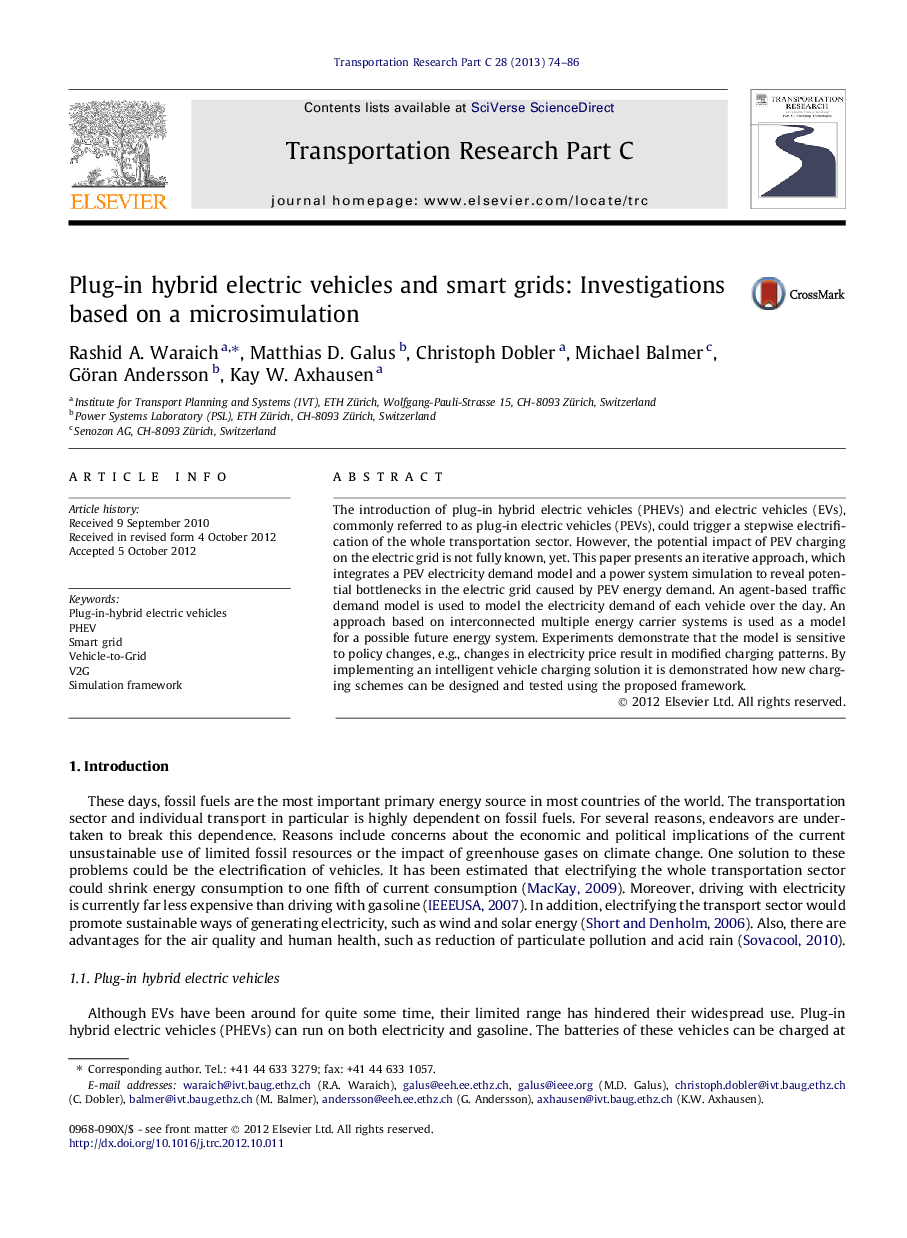| Article ID | Journal | Published Year | Pages | File Type |
|---|---|---|---|---|
| 525174 | Transportation Research Part C: Emerging Technologies | 2013 | 13 Pages |
The introduction of plug-in hybrid electric vehicles (PHEVs) and electric vehicles (EVs), commonly referred to as plug-in electric vehicles (PEVs), could trigger a stepwise electrification of the whole transportation sector. However, the potential impact of PEV charging on the electric grid is not fully known, yet. This paper presents an iterative approach, which integrates a PEV electricity demand model and a power system simulation to reveal potential bottlenecks in the electric grid caused by PEV energy demand. An agent-based traffic demand model is used to model the electricity demand of each vehicle over the day. An approach based on interconnected multiple energy carrier systems is used as a model for a possible future energy system. Experiments demonstrate that the model is sensitive to policy changes, e.g., changes in electricity price result in modified charging patterns. By implementing an intelligent vehicle charging solution it is demonstrated how new charging schemes can be designed and tested using the proposed framework.
► Agent-based transport simulation framework for plug-in hybrid electric vehicles. ► Assessing the impact of plug-in hybrid electric vehicles on the electric grid. ► Evaluation of charging strategies including smart charging. ► Extension of framework includes Vehicle-to-Grid and decentralized smart grid.
